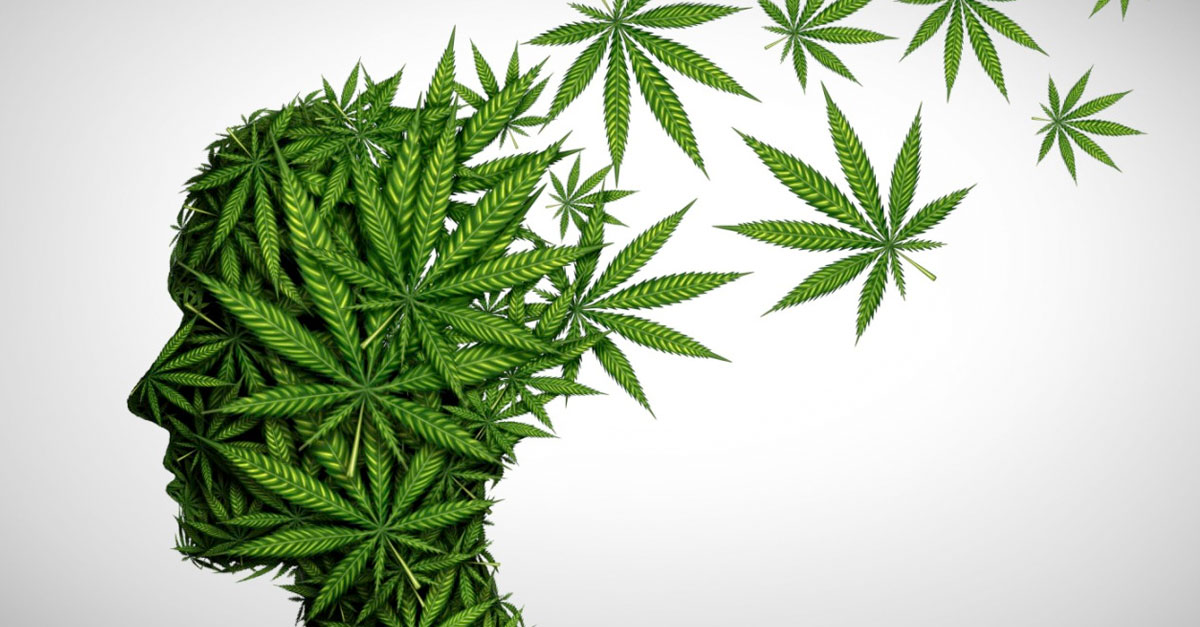Does Cannabis Really Affect Memory?

With the popularity of MMJ and the acceptance of its use in treating health conditions, it seems that today’s science disproves the old ideas of cannabis as being harmful. A significant area of interest is how marijuana affects memory.
Stoners have long taken the brunt of jokes about weed and memory, but is there any truth to it? The myriad of information and science appear to show conflicting evidence for cannabis either improving or impairing cognition. But let’s briefly examine the current consensus on how cannabis affects memory.
Cognitive Skills and Cannabis
To illustrate just how inconsistent the science is regarding cannabis and memory, here are two opposing viewpoints from Harvard. The first is a 2018 study published in Frontiers In Pharmacology Journal. It was conducted in part by Harvard and is titled “Medical Marijuana Patients Exhibit Altered Brain Activity and Improved Executive Function after 3 Months of Treatment”.
Over three months, researchers tracked 24 certified medical marijuana patients to assess the impact of medical marijuana on executive function. During this time, they consistently measured cognitive proficiency in the participants. What they found is that MMJ patients did not show any decline in cognitive performance at all. In fact, the patients actually demonstrated improvements in executive function!
In contrast, a 2021 article published on Harvard University’s health website states: “There’s no question that marijuana (the dried flowers and leaves of the cannabis plant) can produce short-term problems with thinking, working memory, executive function, and psychomotor function (physical actions that require conscious thought, such as driving a car or playing a musical instrument). This is because marijuana’s main psychoactive chemical, THC, causes its effect by attaching to receptors in brain regions that are vital for memory formation, including the hippocampus, amygdala, and cerebral cortex.”
Confusing? For sure.
But to be fair, Harvard went on to link a 2022 study published in The American Journal of Psychiatry suggesting that the cognitive impairment and decline caused by cannabis are due to long-term use.
Acetylcholine for Memory
Cannabis has long been thought to be “anticholinergic .” That means it inhibits the action of acetylcholine neurotransmission. This is important because acetylcholine is the primary neurotransmitter responsible for memory and cognition.
As you might have expected, some studies show just the opposite.
A 1987 study’s abstract showed numerous cannabinoids to raise acetylcholine levels in different areas of the brain. For example: “delta 9-THC (30 mg/kg) caused a significant elevation of ACh in all five brain areas.” This implies that cannabis can cause a boost in memory, putting this study in favor of cannabis as a treatment for improved cognition.
Yet a 1998 study by the University of Cagliari in Italy demonstrated inhibition of acetylcholine with delta-9 use. And inhibition can cause memory loss or poor short-term memory. It states: “The results confirm previous observations that cannabinoids inhibit acetylcholine release through cannabinoid CB1 receptors, and indicate that no tolerance to these effects develops after repeated delta 9-THC administration.”
Dopamine for Memory
While acetylcholine is mainly responsible, the neurotransmitter dopamine also plays a significant part in the role of memory. Therefore, when your dopamine level rises too high or drops too low, your memory (and other cognitive functions) can be affected negatively.
Most evidence for memory decline in MMJ users is attributed to excessive cannabis usage. Limited brain imagery and testing have been done but what we have shows a deficit in dopamine levels in heavy users. A 2016 study published in Molecular Psychiatry is one of these. It states: “Lower dopamine release in the associative striatum correlated with inattention and negative symptoms in [cannabis-dependant patients], and with poorer working memory and probabilistic category learning performance.”
However, a decrease in dopamine for people with higher than normal levels might be a good thing. Theoretically, it could help to balance the dopaminergic system and, therefore, memory recall. And it could be a potential advantage of using cannabis to boost memory and cognition. But beware, this might only apply to non-excessive users.
The Verdict
We will probably continue debating the old stigma of marijuana causing short-term memory loss for a few more years. After all, there seems to be plenty of evidence for both sides.
The verdict? Cannabis may cause memory decline but might also be used as a treatment for poor memory! Either way, it will be exciting to see what’s in store for marijuana and cannabinoids in treating cognitive disorders.
FDA Disclaimer: These statements have not been evaluated by the Food and Drug Administration. These compounds are not intended to diagnose, treat, cure or prevent any disease.
Latest GreenCore News
CBGA: The Mother of All Cannabinoids
CBGA: The Mother of All Cannabinoids CBGA, often called the "mother of all cannabinoids," is gaining significant attention. This foundational cannabinoid is showing promise in reducing seizures and treating conditions like insomnia and chronic pain. Recently, its...
Cannabis Concentrate Spotlight: Rick Simpson Oil
Cannabis Concentrate Spotlight: Rick Simpson Oil Rick Simpson Oil has become a cornerstone in the world of cannabis products. Renowned for its versatility, this concentrate offers a multitude of benefits for both medical patients and recreational users.In this blog,...
CBD 101: Properties, Production, and Potential
CBD 101: Properties, Production, and Potential CBD has rapidly evolved from a little-known compound to a household term. But while it has become a ubiquitous term, many remain unclear on what cannabidiol actually is. In this blog, Green Core Specialty Insurance...
Contact Us
Office Location
1600 Golf Road, Suite 1200
Rolling Meadows, IL 60008
Office Hours
M-F: 8am - 6pm
Phone
847-201-4600



